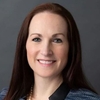- videocam On-Demand Webinar
- signal_cellular_alt Intermediate
- card_travel Insurance
- schedule 90 minutes
Discovery in Bad Faith Insurance Litigation: Key to Successfully Proving or Defending Claims
Navigating Scope of Discovery, Document Production, and Joint Client Exception to and Implied Waivers of Privilege
Welcome to BARBRI, the trusted global leader in legal education. Continue to access the same expert-led Strafford CLE and CPE webinars you know and value. Plus, explore professional skills courses and more.
About the Course
Introduction
This CLE course will discuss unique discovery requests that arise when a policyholder argues that its insurer's investigation and subsequent denial of its claim was arbitrary, capricious, and undertaken "in bad faith." The webinar will cover what information to request, how to request the information in written discovery in a way that makes boilerplate objections look frivolous, and how insurers can demonstrate that overly broad requests for materials related to other claims are improper.
Description
Bad faith lawsuits challenge the propriety of claim denial and the integrity of the claim denial process. Discovery of the right information and documents usually means the difference between winning and losing the case. Plaintiff's counsel must identify objectively unreasonable, reckless, and malicious conduct, evidence of which is generally deep inside ostensibly "confidential" or "privileged" files.
Defense counsel must limit the scope of the plaintiff's discovery and effectively manage document production to keep the focus on whether there was a reasonable basis for the denial of a plaintiff's claims. Defense counsel must also consider discovery that calls into question whether the plaintiff's conduct was objectively reasonable and/or whether the plaintiff was trying to set up the insurer for a bad faith claim.
Expert witnesses may be a viable option for a plaintiff to prove bad faith claims and defense counsel must be prepared to challenge the plaintiff's witness testimony. Both sides need to prepare to address the discoverability of information needed to support or defend punitive damages claims.
Bad faith claims may include battles over whether the work-product doctrine protects certain materials. Unique attorney-client privilege issues also arise, such as the joint client exception to the privilege and any implied waivers of the privilege during claim investigation.
Listen as our panel of authoritative practitioners provides its perspectives on the evolving state of the law and effective strategies for obtaining or defending discovery in bad faith insurance claims.
Presented By

Ms. Dinneen concentrates her practice on the representation of insurers in bad faith litigation, catastrophe/mass tort defense, insurance fraud, and insurance coverage matters. She also has experience defending Jones Act and LHWCA claims. Ms. Dinneen is a frequent speaker on bad faith insurance topics.

Mr. Jacobus' practice over the past decade has largely centered on high risk, high value insurance coverage litigation, but he comes from a broad civil and commercial litigation and trial background. He has tried jury trials to verdict in CA, IL and LA. Several of his cases have resulted in written opinions in trial courts and courts of appeal, and he has argued appeals in both state and federal courts.

Ms. Weiss focuses her practice in commercial litigation with an emphasis on insurance recovery, exclusively on behalf of policyholders. She represents corporate policyholders in a wide range of coverage matters, and has experience with first-party property loss, crime insurance, employment practices liability insurance, directors & officers liability insurance, and other claims-made professional liability insurance. Ms. Weiss has helped secured millions of dollars in recoveries for corporate clients in both litigation and pre-litigation matters.
-
This 90-minute webinar is eligible in most states for 1.5 CLE credits.
-
Live Online
On Demand
Date + Time
- event
Tuesday, October 21, 2025
- schedule
1:00 p.m. ET./10:00 a.m. PT
I. Plaintiff perspective
A. Identifying conduct giving rise to bad faith claim
B. Identifying sources of documents, information, and testimony
II. Defense perspective
A. Limiting the scope of the plaintiff's discovery
B. Identifying documents and testimony to refute claims
III. Other relevant issues
A. Attorney-client privilege
B. Work product
C. Punitive damages
D. Expert witnesses
The panel will review these and other key issues:
- What is discoverable, and how can one limit or best manage discovery?
- What role does the attorney-client privilege play in shielding disclosures?
- Can the plaintiff use expert witnesses to prove the claim?
- What are the limitations on an expert's testimony?
- What are the cost issues to consider—and can cost-shifting be implemented?
Unlimited access to premium CLE courses:
- Annual access
- Available live and on-demand
- Best for attorneys and legal professionals
Unlimited access to premium CPE courses.:
- Annual access
- Available live and on-demand
- Best for CPAs and tax professionals
Unlimited access to premium CLE, CPE, Professional Skills and Practice-Ready courses.:
- Annual access
- Available live and on-demand
- Best for legal, accounting, and tax professionals
Unlimited access to Professional Skills and Practice-Ready courses:
- Annual access
- Available on-demand
- Best for new attorneys
Related Courses

Bad Faith and Weather Claims: Concurrent Causation, Ensuing Losses, Extent of Damages, Role of Experts
Thursday, March 26, 2026
1:00 p.m. ET/10:00 a.m. PT

Ethics of Insurance Defense Under ROR: Model Rule 1.7, Conflicts, and Insured's Right to Independent Counsel
Wednesday, April 22, 2026
1:00 p.m. ET/10:00 a.m. PT
Recommended Resources

Navigating Modern Legal Challenges: A Comprehensive Guide
- Business & Professional Skills
- Career Advancement

Your Guide to Professional Development with BARBRI
- Learning & Development
- Business & Professional Skills
- Career Advancement
- eDiscovery

Building Your Book: Strategies to Secure Long-Term Success
- Business & Professional Skills
- Career Advancement
- Talent Development
